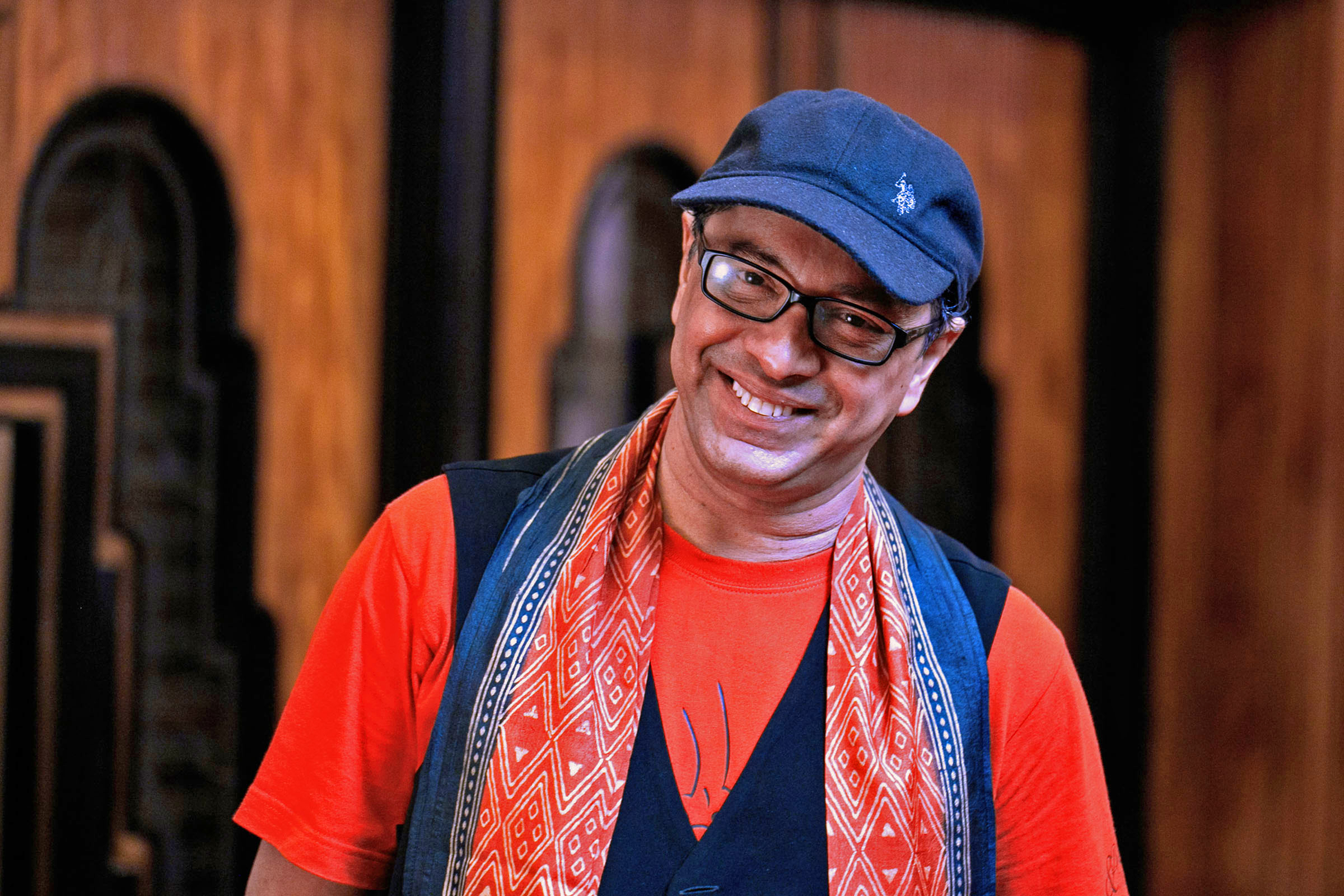FEATURE FILM – EVENING SHADOWS
The Iris Blogger talks with writer-director Sridhar Rangayan about his latest feature film and what the future holds for India.
The Iris Prize LGBT+ Film Festival has had ties with India almost since the beginning. Our partnership with
KASHISH Mumbai International Queer Film Festival began in 2010, shortly after the 2009 decision by India’s Supreme Court to overturn colonial-era laws that criminalized homosexuality.
In 2013 that judgement was sadly reversed, but Iris’s relationship with Mumbai and India continued, and the team in Cardiff was overjoyed when, in September of this year, those laws were finally quashed by the Supreme Court of India.
Sridhar Rangayan is one of the directors of Kashish, but he also has a 20-year career as a writer, director and producer. He has worked in television and documentary-making, and has directed a number of dramatic feature films, including
Yeh Hai Chakkad Bakkad Bumbe Bo, Yours Emotionally and
68 Pages.
Evening Shadows is set against the backdrop of the 2013 Supreme Court decision, exploring the impact that a son’s coming out has on his family in a traditional corner of southern India. The Iris Blogger caught up with Sridhar via email to find out more about the film.
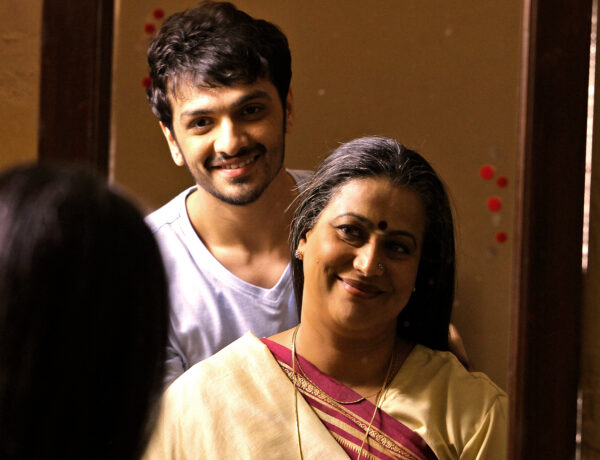 IRIS BLOGGER: The film is very much about the mother’s reaction to the revelation that her son is gay – it’s her journey that we follow. How did you choose to make her the central character, rather than Kartik?
SRIDHAR RANGAYAN:
IRIS BLOGGER: The film is very much about the mother’s reaction to the revelation that her son is gay – it’s her journey that we follow. How did you choose to make her the central character, rather than Kartik?
SRIDHAR RANGAYAN: When you come out of the closet, you push your mother into the closet. Your secret becomes her secret, and she has to hide it from people around her, even her own husband. This becomes even more challenging when the mother is from a small town, where even sexuality is not discussed, and there is absolutely no access to information.
Evening Shadows is the story of a traditional mother Vasudha, in a small town in South India, trying to come to terms with her son Kartik’s truth, which is against all her religious and social mores.
We felt it was important to speak about their dilemmas, their fears and anguish when their children come out. Many youngsters these days have this great urge to come out and they do it very impulsively, without fully understanding the impact it has on their families.
Coming out is a journey both LGBTQ persons and their families have to make together.
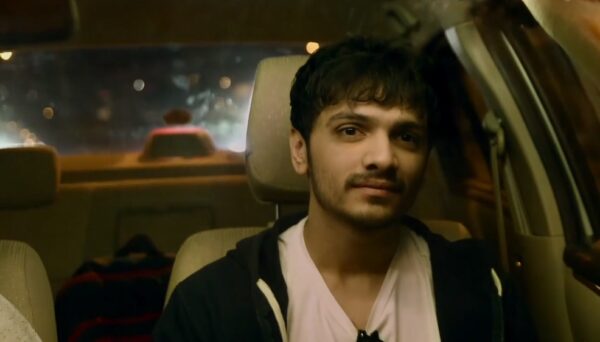 IB: There’s a sense of Mumbai representing New India – modern, global, progressive – and Kartik’s hometown in Karnataka representing Old India – traditional and conservative. Is that based on your own experience of those places?
SR:
IB: There’s a sense of Mumbai representing New India – modern, global, progressive – and Kartik’s hometown in Karnataka representing Old India – traditional and conservative. Is that based on your own experience of those places?
SR: We wanted to provide this contrast that exists in India, which paradoxically lives in the 16
th and 21
st century at the same time. While metro cities like Mumbai and Bangalore are global hubs, smaller towns and villages still struggle with old social mores, where patriarchy rules – quashing voices of women and sexual minorities.
I was born and grew up in small town India, very close to the place where the film
Evening Shadows is set. Like most gay men then, I moved to Mumbai for studies and set up home here. The big city offered an anonymity in which one could live out one’s sexuality.
In the film, we wanted to bring about this contrast, with the gay party scene in Mumbai - where being gay and flamboyant is normal - set against the desolation and loneliness of Kartik in a small town on the night of his coming out.
However, as one of the characters in the film says, “Whether from a small town or a big city it is never easy for mothers to accept their son’s sexuality in India”. That’s quite true.
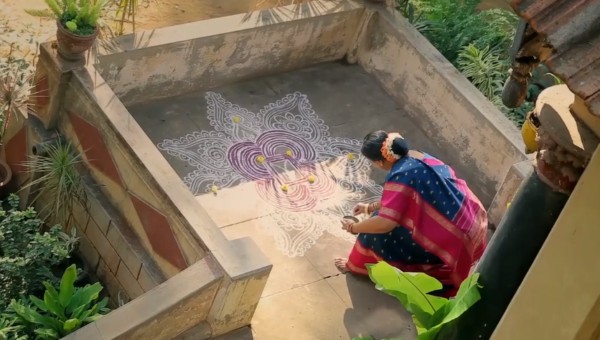 IB: I get the feeling that both you and Kartik are quite fond of some of those traditions, that there’s frustration but not resentment. How do you see India balancing tradition and tolerance/diversity in the future?
SR:
IB: I get the feeling that both you and Kartik are quite fond of some of those traditions, that there’s frustration but not resentment. How do you see India balancing tradition and tolerance/diversity in the future?
SR: Traditions are a part and parcel of Indian cultural ethos and there’s great value in preserving and carrying them forward in a sensible way. I feel traditions and culture have to be ever-evolving, they cannot be stagnant and parochial. The real challenge arises when tradition becomes a barrier, an impediment, to contemporary ethos.
Evening Shadows is a film about two generations in conflict because of their viewpoints, which leads to intolerance. In the film, in one of the scenes, the father Damodar says about gay men, “I wonder what kind of families these people come from”, without realizing that LGBTQ persons could be part of any family, in this case his own family! One has to be accepting and tolerant of diverse aspirations.
I think the New India has to be formed by reimagining our own traditions and rethinking about global influences and values – it is indeed a balancing act, but if you are confident in your own ethos, it is easy to mould and reshape it.
IB: We’ve recently had the amazing news that after 157 years, the Section 377 laws relating to homosexuality have finally been repealed. The 2013 Supreme Court ruling which reinstated it features prominently in Evening Shadows. Did you have any idea when you were writing and making the film that by the time many audiences saw it the ruling would be quashed?
SR: It is rather ironic that the script of
Evening Shadows was written in 2009 very soon after the Delhi High Court verdict reading down Sec 377; to highlight the fact that there has been a legal victory, but social attitudes, especially within families, have to change. The film didn’t get made then because we just couldn’t raise the money. Then the Supreme Court reversal of judgment happened in 2013 which was a big setback. The film is set around Dec 2013, with this ruling at the centre of the story. And now in 2018 when the film is going strong around the film festivals, the final victory on Sec 377 happens. It’s quite providential!
Evening Shadows highlights the fact that while legal victory is one part of the challenge, change in mindsets is what is needed. And that is evident by the response the film has been receiving everywhere – in India and globally. We have seen that in several countries where there is no law criminalizing LGBTQ persons, it is still a challenge for youngsters to come out, and more so for parents to accept their children.
Parents are not as afraid of accepting their child’s sexuality, as much as what other people around them (their peers, neighbors, society) think about this – that is the social attitude which has to change.
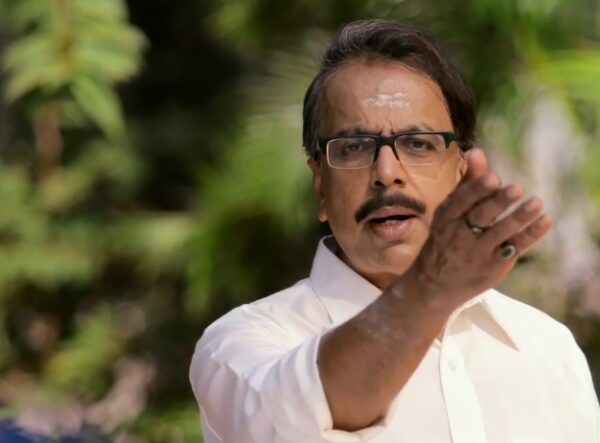 IB: Do you think films like Evening Shadows have the power to change the attitudes of people like Kartik’s father, Damodar? And without spoiling too much, do you think Damodar himself has the potential to change?
SR:
IB: Do you think films like Evening Shadows have the power to change the attitudes of people like Kartik’s father, Damodar? And without spoiling too much, do you think Damodar himself has the potential to change?
SR: I strongly believe films have the power to change mindsets; otherwise I wouldn’t be making films at all.
The films that Saagar Gupta (producer) and I’ve make under our banner Solaris Pictures since 2002 use entertainment as a means for advocacy through the medium of cinema. Each of our films -
The Pink Mirror, Yours Emotionally, 68 Pages, Purple Skies, Breaking Free and now
Evening Shadows - have been able to ignite a spark of thought in the mind of the audience which hopefully will be a catalyst in them rethinking about their perceptions. But the challenge definitely is to bring a conservative dogmatic person like Damodar to come to watch the film!
IB: How has the film been received in India? Has it been screened in Srirangapatna/Karnataka?
SR: After the film’s World Premiere at Sydney’s Mardi Gras Film Festival in Feb 2018,
Evening Shadows had its Indian Premiere at the Bengaluru International Film Festival in Karnataka in March. This screening was very interesting – it had a 230-strong houseful audience who came to see the film, and a large part of the audience was men (like Damodar!). Everyone seemed to enjoy the film and reacted well, but everyone left after the film without staying back for the Q&A. So it looked like they didn’t want to engage in a conversation, very typical of men like Damodar. They will take time to change, but they will.
Since then we have had two other screenings in India – one at Kashish, with about 1,200 strong audience, who went ballistic at every dialogue and emotion in the film! It was surely the best screening we have had, the identification with the characters and story was intrinsic. The other screening was at Lonavala International Film Festival where the film played just one day after the landmark Supreme Court verdict reading down Sec 377. It was one of the most joyous screenings.
We are now looking for a mainstream release for the film in India – in theaters and on TV so it can reach to the audience for whom this film is intended – families and mainstream society. We hope
Evening Shadows will be a harbinger of change, for a free and equitable India.
 IRIS BLOGGER: The film is very much about the mother’s reaction to the revelation that her son is gay – it’s her journey that we follow. How did you choose to make her the central character, rather than Kartik?
SRIDHAR RANGAYAN: When you come out of the closet, you push your mother into the closet. Your secret becomes her secret, and she has to hide it from people around her, even her own husband. This becomes even more challenging when the mother is from a small town, where even sexuality is not discussed, and there is absolutely no access to information.
Evening Shadows is the story of a traditional mother Vasudha, in a small town in South India, trying to come to terms with her son Kartik’s truth, which is against all her religious and social mores.
We felt it was important to speak about their dilemmas, their fears and anguish when their children come out. Many youngsters these days have this great urge to come out and they do it very impulsively, without fully understanding the impact it has on their families.
Coming out is a journey both LGBTQ persons and their families have to make together.
IRIS BLOGGER: The film is very much about the mother’s reaction to the revelation that her son is gay – it’s her journey that we follow. How did you choose to make her the central character, rather than Kartik?
SRIDHAR RANGAYAN: When you come out of the closet, you push your mother into the closet. Your secret becomes her secret, and she has to hide it from people around her, even her own husband. This becomes even more challenging when the mother is from a small town, where even sexuality is not discussed, and there is absolutely no access to information.
Evening Shadows is the story of a traditional mother Vasudha, in a small town in South India, trying to come to terms with her son Kartik’s truth, which is against all her religious and social mores.
We felt it was important to speak about their dilemmas, their fears and anguish when their children come out. Many youngsters these days have this great urge to come out and they do it very impulsively, without fully understanding the impact it has on their families.
Coming out is a journey both LGBTQ persons and their families have to make together.
 IB: There’s a sense of Mumbai representing New India – modern, global, progressive – and Kartik’s hometown in Karnataka representing Old India – traditional and conservative. Is that based on your own experience of those places?
SR: We wanted to provide this contrast that exists in India, which paradoxically lives in the 16th and 21st century at the same time. While metro cities like Mumbai and Bangalore are global hubs, smaller towns and villages still struggle with old social mores, where patriarchy rules – quashing voices of women and sexual minorities.
I was born and grew up in small town India, very close to the place where the film Evening Shadows is set. Like most gay men then, I moved to Mumbai for studies and set up home here. The big city offered an anonymity in which one could live out one’s sexuality.
In the film, we wanted to bring about this contrast, with the gay party scene in Mumbai - where being gay and flamboyant is normal - set against the desolation and loneliness of Kartik in a small town on the night of his coming out.
However, as one of the characters in the film says, “Whether from a small town or a big city it is never easy for mothers to accept their son’s sexuality in India”. That’s quite true.
IB: There’s a sense of Mumbai representing New India – modern, global, progressive – and Kartik’s hometown in Karnataka representing Old India – traditional and conservative. Is that based on your own experience of those places?
SR: We wanted to provide this contrast that exists in India, which paradoxically lives in the 16th and 21st century at the same time. While metro cities like Mumbai and Bangalore are global hubs, smaller towns and villages still struggle with old social mores, where patriarchy rules – quashing voices of women and sexual minorities.
I was born and grew up in small town India, very close to the place where the film Evening Shadows is set. Like most gay men then, I moved to Mumbai for studies and set up home here. The big city offered an anonymity in which one could live out one’s sexuality.
In the film, we wanted to bring about this contrast, with the gay party scene in Mumbai - where being gay and flamboyant is normal - set against the desolation and loneliness of Kartik in a small town on the night of his coming out.
However, as one of the characters in the film says, “Whether from a small town or a big city it is never easy for mothers to accept their son’s sexuality in India”. That’s quite true.
 IB: I get the feeling that both you and Kartik are quite fond of some of those traditions, that there’s frustration but not resentment. How do you see India balancing tradition and tolerance/diversity in the future?
SR: Traditions are a part and parcel of Indian cultural ethos and there’s great value in preserving and carrying them forward in a sensible way. I feel traditions and culture have to be ever-evolving, they cannot be stagnant and parochial. The real challenge arises when tradition becomes a barrier, an impediment, to contemporary ethos.
Evening Shadows is a film about two generations in conflict because of their viewpoints, which leads to intolerance. In the film, in one of the scenes, the father Damodar says about gay men, “I wonder what kind of families these people come from”, without realizing that LGBTQ persons could be part of any family, in this case his own family! One has to be accepting and tolerant of diverse aspirations.
I think the New India has to be formed by reimagining our own traditions and rethinking about global influences and values – it is indeed a balancing act, but if you are confident in your own ethos, it is easy to mould and reshape it.
IB: We’ve recently had the amazing news that after 157 years, the Section 377 laws relating to homosexuality have finally been repealed. The 2013 Supreme Court ruling which reinstated it features prominently in Evening Shadows. Did you have any idea when you were writing and making the film that by the time many audiences saw it the ruling would be quashed?
SR: It is rather ironic that the script of Evening Shadows was written in 2009 very soon after the Delhi High Court verdict reading down Sec 377; to highlight the fact that there has been a legal victory, but social attitudes, especially within families, have to change. The film didn’t get made then because we just couldn’t raise the money. Then the Supreme Court reversal of judgment happened in 2013 which was a big setback. The film is set around Dec 2013, with this ruling at the centre of the story. And now in 2018 when the film is going strong around the film festivals, the final victory on Sec 377 happens. It’s quite providential!
Evening Shadows highlights the fact that while legal victory is one part of the challenge, change in mindsets is what is needed. And that is evident by the response the film has been receiving everywhere – in India and globally. We have seen that in several countries where there is no law criminalizing LGBTQ persons, it is still a challenge for youngsters to come out, and more so for parents to accept their children.
Parents are not as afraid of accepting their child’s sexuality, as much as what other people around them (their peers, neighbors, society) think about this – that is the social attitude which has to change.
IB: I get the feeling that both you and Kartik are quite fond of some of those traditions, that there’s frustration but not resentment. How do you see India balancing tradition and tolerance/diversity in the future?
SR: Traditions are a part and parcel of Indian cultural ethos and there’s great value in preserving and carrying them forward in a sensible way. I feel traditions and culture have to be ever-evolving, they cannot be stagnant and parochial. The real challenge arises when tradition becomes a barrier, an impediment, to contemporary ethos.
Evening Shadows is a film about two generations in conflict because of their viewpoints, which leads to intolerance. In the film, in one of the scenes, the father Damodar says about gay men, “I wonder what kind of families these people come from”, without realizing that LGBTQ persons could be part of any family, in this case his own family! One has to be accepting and tolerant of diverse aspirations.
I think the New India has to be formed by reimagining our own traditions and rethinking about global influences and values – it is indeed a balancing act, but if you are confident in your own ethos, it is easy to mould and reshape it.
IB: We’ve recently had the amazing news that after 157 years, the Section 377 laws relating to homosexuality have finally been repealed. The 2013 Supreme Court ruling which reinstated it features prominently in Evening Shadows. Did you have any idea when you were writing and making the film that by the time many audiences saw it the ruling would be quashed?
SR: It is rather ironic that the script of Evening Shadows was written in 2009 very soon after the Delhi High Court verdict reading down Sec 377; to highlight the fact that there has been a legal victory, but social attitudes, especially within families, have to change. The film didn’t get made then because we just couldn’t raise the money. Then the Supreme Court reversal of judgment happened in 2013 which was a big setback. The film is set around Dec 2013, with this ruling at the centre of the story. And now in 2018 when the film is going strong around the film festivals, the final victory on Sec 377 happens. It’s quite providential!
Evening Shadows highlights the fact that while legal victory is one part of the challenge, change in mindsets is what is needed. And that is evident by the response the film has been receiving everywhere – in India and globally. We have seen that in several countries where there is no law criminalizing LGBTQ persons, it is still a challenge for youngsters to come out, and more so for parents to accept their children.
Parents are not as afraid of accepting their child’s sexuality, as much as what other people around them (their peers, neighbors, society) think about this – that is the social attitude which has to change.
 IB: Do you think films like Evening Shadows have the power to change the attitudes of people like Kartik’s father, Damodar? And without spoiling too much, do you think Damodar himself has the potential to change?
SR: I strongly believe films have the power to change mindsets; otherwise I wouldn’t be making films at all.
The films that Saagar Gupta (producer) and I’ve make under our banner Solaris Pictures since 2002 use entertainment as a means for advocacy through the medium of cinema. Each of our films - The Pink Mirror, Yours Emotionally, 68 Pages, Purple Skies, Breaking Free and now Evening Shadows - have been able to ignite a spark of thought in the mind of the audience which hopefully will be a catalyst in them rethinking about their perceptions. But the challenge definitely is to bring a conservative dogmatic person like Damodar to come to watch the film!
IB: How has the film been received in India? Has it been screened in Srirangapatna/Karnataka?
SR: After the film’s World Premiere at Sydney’s Mardi Gras Film Festival in Feb 2018, Evening Shadows had its Indian Premiere at the Bengaluru International Film Festival in Karnataka in March. This screening was very interesting – it had a 230-strong houseful audience who came to see the film, and a large part of the audience was men (like Damodar!). Everyone seemed to enjoy the film and reacted well, but everyone left after the film without staying back for the Q&A. So it looked like they didn’t want to engage in a conversation, very typical of men like Damodar. They will take time to change, but they will.
Since then we have had two other screenings in India – one at Kashish, with about 1,200 strong audience, who went ballistic at every dialogue and emotion in the film! It was surely the best screening we have had, the identification with the characters and story was intrinsic. The other screening was at Lonavala International Film Festival where the film played just one day after the landmark Supreme Court verdict reading down Sec 377. It was one of the most joyous screenings.
We are now looking for a mainstream release for the film in India – in theaters and on TV so it can reach to the audience for whom this film is intended – families and mainstream society. We hope Evening Shadows will be a harbinger of change, for a free and equitable India.
IB: Do you think films like Evening Shadows have the power to change the attitudes of people like Kartik’s father, Damodar? And without spoiling too much, do you think Damodar himself has the potential to change?
SR: I strongly believe films have the power to change mindsets; otherwise I wouldn’t be making films at all.
The films that Saagar Gupta (producer) and I’ve make under our banner Solaris Pictures since 2002 use entertainment as a means for advocacy through the medium of cinema. Each of our films - The Pink Mirror, Yours Emotionally, 68 Pages, Purple Skies, Breaking Free and now Evening Shadows - have been able to ignite a spark of thought in the mind of the audience which hopefully will be a catalyst in them rethinking about their perceptions. But the challenge definitely is to bring a conservative dogmatic person like Damodar to come to watch the film!
IB: How has the film been received in India? Has it been screened in Srirangapatna/Karnataka?
SR: After the film’s World Premiere at Sydney’s Mardi Gras Film Festival in Feb 2018, Evening Shadows had its Indian Premiere at the Bengaluru International Film Festival in Karnataka in March. This screening was very interesting – it had a 230-strong houseful audience who came to see the film, and a large part of the audience was men (like Damodar!). Everyone seemed to enjoy the film and reacted well, but everyone left after the film without staying back for the Q&A. So it looked like they didn’t want to engage in a conversation, very typical of men like Damodar. They will take time to change, but they will.
Since then we have had two other screenings in India – one at Kashish, with about 1,200 strong audience, who went ballistic at every dialogue and emotion in the film! It was surely the best screening we have had, the identification with the characters and story was intrinsic. The other screening was at Lonavala International Film Festival where the film played just one day after the landmark Supreme Court verdict reading down Sec 377. It was one of the most joyous screenings.
We are now looking for a mainstream release for the film in India – in theaters and on TV so it can reach to the audience for whom this film is intended – families and mainstream society. We hope Evening Shadows will be a harbinger of change, for a free and equitable India. 